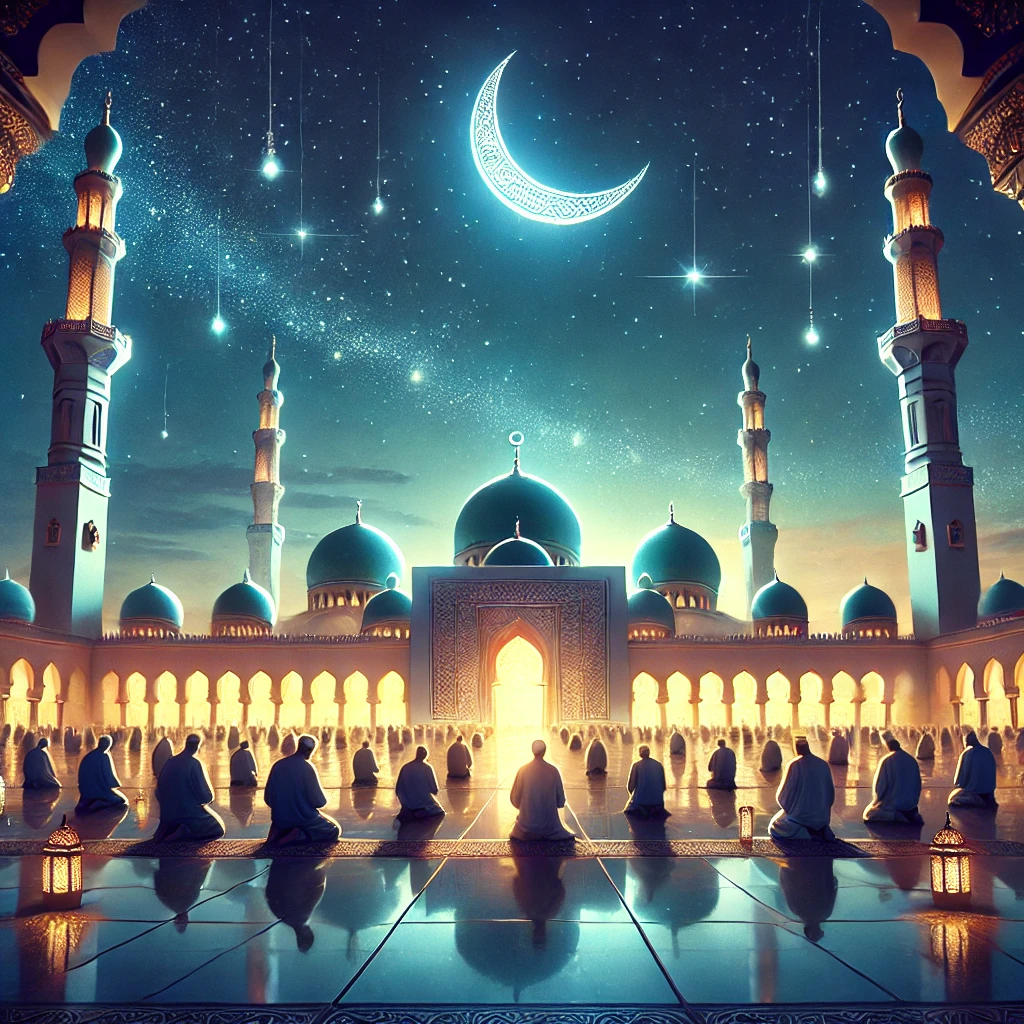
Shab-e-Barat, observed on the 15th night of Sha’ban, is a night of immense spiritual importance for Muslims worldwide. It is believed to be the night when Allah (SWT) showers His mercy, forgives sins, and writes destinies for the coming year. This night provides a chance for believers to seek forgiveness, engage in worship, and pray for a blessed future.
The name “Shab-e-Barat” originates from Persian and translates to “The Night of Records” or “The Night of Deliverance.” Many Islamic traditions suggest that on this night, the fate of individuals for the coming year is determined, making it an essential occasion for seeking divine mercy and guidance.
The Importance of Shab-e-Barat Shab-e-Barat is often referred to as the “Night of Forgiveness” because it is believed that Allah grants pardon to those who sincerely repent. Islamic scholars highlight that on this night, the records of people’s deeds are reviewed, and divine decisions regarding life, death, and sustenance are written. Various Hadiths suggest that Prophet Muhammad (PBUH) emphasized the importance of this night, urging his followers to engage in acts of worship and seek Allah’s mercy.
According to Islamic traditions, Prophet Muhammad (PBUH) would spend this night in prayer, seeking forgiveness for his Ummah. Many scholars consider this night a significant moment for spiritual renewal and reflection.
Recommended Acts of Worship
- Special Prayers (Nafl Salah): Many people offer additional voluntary prayers, seeking closeness to Allah. Tahajjud, Salatul Tasbih, and other Nafl prayers are encouraged.
- Recitation of the Quran: Reading and reflecting upon the Holy Quran on this night enhances spiritual growth. Surah Yaseen, Surah Mulk, and Surah Ikhlas are among the recommended chapters for recitation.
- Dua and Seeking Forgiveness: Sincere repentance and supplications for oneself, family, and the entire Ummah are highly recommended. Believers often make lengthy duas, asking for guidance, prosperity, and good health.
- Fasting the Next Day: Some Muslims observe fasting on the 15th of Sha’ban to seek further blessings. While it is not obligatory, fasting on this day is believed to bring immense rewards.
- Visiting Graveyards: Many visit the graves of their loved ones to pray for their souls and seek mercy for the departed. Prophet Muhammad (PBUH) was known to visit the graveyard of Jannatul Baqi on this night to pray for those who had passed away.
Shab-e-Barat in Different Cultures Muslims around the world observe Shab-e-Barat in various ways. In some regions, people illuminate mosques, distribute food to the needy, and spend the night in prayer. While traditions may differ, the essence of seeking forgiveness and divine mercy remains universal.
In South Asia, people prepare special meals and share sweets with their neighbors, fostering a sense of community. In Turkey and parts of the Middle East, religious gatherings and special sermons are held in mosques to educate people about the significance of the night. Each culture has its unique way of commemorating this blessed occasion while maintaining the core focus on devotion and repentance.
The Connection Between Shab-e-Barat and Ramadan Shab-e-Barat serves as a spiritual gateway to the holy month of Ramadan. It provides an opportunity for Muslims to prepare themselves mentally and spiritually for fasting and increased acts of worship. Since it falls just two weeks before Ramadan, it acts as a reminder to cleanse one’s heart, seek forgiveness, and strive towards self-improvement.
Many people use this night to start making resolutions for Ramadan, planning their worship schedules, and increasing their efforts in charity and good deeds. It is an ideal time to reflect on past mistakes and set goals for personal growth in faith and practice.
Conclusion Shab-e-Barat is a night of reflection, prayer, and seeking Allah’s forgiveness. It reminds believers to purify their hearts, perform good deeds, and prepare for the blessed month of Ramadan. By dedicating time to worship and sincerity, one can make the most of this sacred night and earn Allah’s mercy and blessings.
This night serves as a beautiful reminder that no matter how many mistakes one has made, Allah’s doors of forgiveness are always open. Taking advantage of this special occasion through prayers, good deeds, and sincere repentance can lead to a spiritually fulfilling journey ahead.





